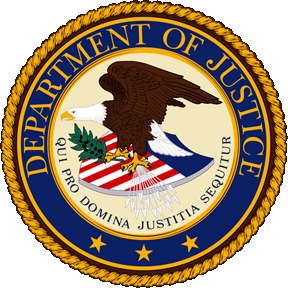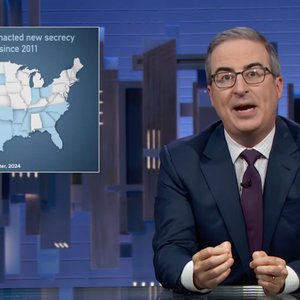
As the U.S. Department of Justice seeks to resume federal executions after a 17-year hiatus, the government’s rushed timeframe, the ongoing COVID-19 pandemic, and unresolved issues involving the lethal-injection protocol, and the victims’ family’s rights have combined with alleged constitutional violations in the cases of the three prisoners slated for execution this week to produce a chaotic whirlwind of last-minute litigation.
Federal courts facing compressed timelines have issued rulings with just hours to spare before the first scheduled execution: that of Daniel Lewis Lee, scheduled for Monday, July 13, 2020 at 4 pm Eastern time. After the scheduled execution hour had passed, the government’s appeal of an injunction from a federal district court was pending in a federal appeals court, the victims’ family’s request to halt the execution to consider their request to be able to attend after the pandemic subsides was pending in the U.S. Supreme Court, and Lee had requested the Court to review whether federal law provided a vehicle to review evidence that the prosecution unconstitutionally obtained his death sentence by falsely informing the jury that he had committed a prior murder.
The District Court injunction was still in place at the scheduled execution time, but Lee’s execution warrant remains valid until midnight on the 13th. If the injunction has not been overturned before then, the government will have to reschedule his execution. The federal government has scheduled three executions in five days, with executions planned for Wesley Purkey on July 15 and Dustin Honken on July 17. It has scheduled a fourth execution, that of Keith Nelson, on August 28.
DPIC is tracking all of the litigation in the cases of Daniel Lewis Lee, Wesley Ira Purkey, and Dustin Lee Honken. For the most current updates on those cases, please visit our Federal Execution Updates page. DPIC Executive Director Robert Dunham has issued a statement on the efforts to resume federal executions. The full text is available here.
Shortly before 11 am Eastern on July 13, the U.S. District Court for the District of Columbia granted a preliminary injunction halting all of the scheduled federal executions. The injunction was granted in a case challenging the proposed lethal-injection protocol. The court expressed irritation at the government’s rushed execution schedule. “The succession of last-minute rulings is the result of the Government’s decision to set short execution dates even as many claims, including those addressed here, were pending,” Judge Tanya S. Chutkan wrote. “The Government is entitled to choose dates, but the court cannot take short cuts in its obligations in order to accommodate those dates.”
Judge Chutkan noted that “the public is not served by short-circuiting legitimate judicial process, and is greatly served by attempting to ensure that the most serious punishment is imposed in a manner consistent with our Constitution.” For these reasons, she concluded, “the court finds that it is in the public interest to issue a preliminary injunction.”
The federal government has filed an application in the U.S. Supreme Court to vacate the injunction.
Separate litigation specific to the case of Daniel Lewis Lee resulted in a brief injunction imposed by an Indiana federal court on Friday, July 10, but the U.S. Court of Appeals for the Seventh Circuit lifted the injunction over the weekend. Three family members of murder victims Nancy Mueller and Sarah Powell are requesting that Lee’s execution be delayed until it is safe for them to travel to Indiana to witness it. Earlene Peterson, the mother and grandmother of the two victims, is 81 years old and has been advised by her doctor not to travel during the COVID-19 pandemic. She stated, “I am very fearful of the virus due to my age, my medical conditions, and the advice of my doctor…. I bought a full tank of gas for my car on March 10, and my tank is still full because I have not been going out almost at all for four months.” Her surviving daughter, Kimma Gurel, and granddaughter, Monica Veillette, joined her lawsuit. They both have medical conditions placing them at heightened risk for COVID-19. When Lee’s execution date was initially set in 2019, Peterson issued an emotional plea for clemency, saying that executing him would dishonor her daughter and granddaughter and violate her beliefs.
The family’s attorney rebuked the Attorney General for asserting that the executions were necessary to bring justice for victims’ families, then ignoring the concerns raised by family members. “Despite repeatedly stating that it was pursuing the execution of Lee on behalf of crime victims and their families, the government now argues that those victims have no interest in the matter,” the family’s attorney wrote. “The government’s motion belittles [the family members’] safety concerns by referring to their purported travel ‘preferences’ and supposed ‘willingness’ to attend the execution.” The family “faces the unacceptable choice between exercising their right to witness the execution and risking exposure to a deadly disease.”
The family’s concerns were seemingly confirmed on July 12, when the Justice Department said a staff member engaging in execution preparations at the Terre Haute prison had tested positive for COVID-19. On July 13, Peterson, Gurel, and Veillette filed an appeal in the U.S. Supreme Court.
Litigation is also pending in the cases of Wesley Ira Purkey, scheduled for execution on July 15, and Dustin Honken, scheduled for execution on July 17. Religious advisors for both men have sought stays of execution because of the danger of attending an execution during the pandemic. Purkey also has litigation in progress addressing ineffective assistance of counsel and his mental competence to be executed.
Sources
Harper Neidig, Judge again blocks US from resuming federal executions, The Hill, July 13, 2020; Kevin Johnson, Judge grants delay of first federal execution in 17 years, hours ahead of Daniel Lee Lewis’ lethal injection, USA Today, July 13, 2020; Michael Balsamo, Appeals court: 1st federal execution in 17 years can proceed, Associated Press, July 13, 2020.
For links to the court filings and decisions in these cases, visit DPIC’s page on Federal Execution Updates.
Lethal Injection
Mar 18, 2024
Utah Prisoners’ Request for Information Thwarted by New Legislation Increasing Secrecy in Execution Procedures
Federal Death Penalty
Jan 16, 2024



